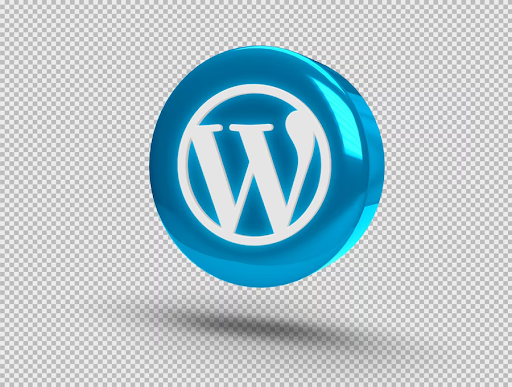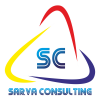In the dynamic world of digital marketing, a website serves as the cornerstone of a business’s online presence, and the choice of a Content Management System (CMS) plays a pivotal role in determining its success. While WordPress offers a user-friendly interface, extensive customization options, and a vast ecosystem of plugins, a custom CMS provides unparalleled flexibility and control. The optimal choice depends on specific business needs and goals, considering factors like scalability, customization, security, performance, SEO-friendliness, and maintenance. By carefully evaluating these factors, businesses can make an informed decision about the CMS that best aligns with their needs and goals.
WordPress: A Versatile Tool for Business Websites

WordPress has emerged as the most popular content management system (CMS) worldwide, powering millions of websites across various industries. Its user-friendly interface, extensive customization options, and vast ecosystem of plugins make it a compelling choice for businesses of all sizes.
Key Features of WordPress
- Intuitive Interface: WordPress offers a user-friendly dashboard that is easy to navigate, even for those without technical expertise.
- Customizable Themes: A vast library of themes allows you to create visually appealing websites that reflect your brand identity.
- Plugin Ecosystem: Thousands of plugins are available to extend WordPress’s functionality, adding features like e-commerce, contact forms, and social media integration.
- SEO-Friendly: WordPress is built with SEO in mind, making it easy to optimize your website for search engines and improve your visibility online.
- Mobile-Responsive: WordPress themes and plugins are designed to be responsive, ensuring your website looks great and functions well on all devices.
Pros of Using WordPress for Business Websites
- Cost-Effective: WordPress is an open-source platform, meaning there are no licensing fees.
- Scalability: It can handle websites of all sizes, from small businesses to large enterprises.
- Flexibility: WordPress offers a high degree of customization, allowing you to create unique and engaging websites.
- Large Community: A vast community of developers and users provides ongoing support and resources.
- Continuous Updates: WordPress is regularly updated with new features and security patches.
Common Scenarios and Industries Where WordPress Excels
- Blogs and Content Marketing: WordPress is ideal for creating and managing blogs, making it a popular choice for content marketers.
- E-commerce: With the help of plugins like WooCommerce, WordPress can be used to build powerful online stores.
- Portfolios and Personal Websites: WordPress is a great option for showcasing your work and building your personal brand.
- Small Business Websites: Its ease of use and affordability make it a popular choice for small businesses.
- Non-Profit Organizations: WordPress can be used to create informative and engaging websites for non-profit organizations.
Custom CMS: A Tailored Solution for Your Business
A custom content management system (CMS) is a web application specifically designed to meet the unique needs of a particular organization or project. Unlike off-the-shelf CMS platforms like WordPress, a custom CMS is built from the ground up to provide tailored functionality and features.
Advantages of a Custom CMS
- Scalability: Custom CMS can be designed to handle any level of traffic or data volume, ensuring your website can grow with your business.
- Customization: With a custom CMS, you have complete control over the design, functionality, and user experience of your website.
- Integration: Custom CMS can be seamlessly integrated with other systems and applications used within your organization.
- Security: A custom CMS can be built with enhanced security measures to protect your website and data from vulnerabilities.
- Performance: Custom CMS can be optimized for speed and performance, providing a fast and efficient user experience.
- SEO-friendliness: A custom CMS can be designed with SEO best practices in mind, helping your website rank higher in search engine results.
- Maintenance: While custom CMS may require more ongoing maintenance than off-the-shelf platforms, the benefits often outweigh the costs.
Ideal Use Cases for a Custom CMS

- Complex websites with unique requirements: If your website needs to perform specific functions that are not easily achievable with a standard CMS, a custom CMS may be the best option.
- Large-scale projects with high traffic: Custom CMS can handle heavy traffic loads and large amounts of data.
- Businesses with stringent security requirements: A custom CMS can be built with robust security measures to protect sensitive information.
- Organizations that require a highly customized user experience: Custom CMS can be tailored to meet the specific needs and preferences of your target audience.
- Companies that want to differentiate themselves from competitors: A custom CMS can help you create a unique and memorable online presence.
CMS platform comparison: WordPress vs. Custom CMS
While WordPress is a popular choice for many businesses, a custom CMS may be a better option for those with more complex needs.
Headless cms future: A type of CMS that separates the content management system from the presentation layer, offering greater flexibility and scalability.
CMS workflow implementation: Streamlining your content management process through a well-defined workflow.
CMS security essentials: Protecting your website from threats by implementing measures like regular updates, strong passwords, and security plugins.
Cost, Time, and Resource Considerations: WordPress vs. Custom CMS
When deciding between WordPress and a custom CMS, it’s crucial to consider the costs, time investment, and resources required for each option.
Cost Comparison
WordPress:
- Initial cost: Lower upfront costs due to the availability of free themes and plugins.
- Ongoing costs: Ongoing costs may include hosting, premium themes, plugins, and maintenance services.
Custom CMS:
- Initial cost: Higher upfront costs due to the development process and customization.
- Ongoing costs: Ongoing costs may include hosting, maintenance, and updates.
Time Investment
WordPress:
- Setup: Relatively quick setup, especially with pre-built themes and plugins.
- Development: Can be faster for simple websites but may require more time for complex customizations.
- Maintenance: Regular updates and maintenance are necessary but can be managed efficiently.
Custom CMS:
- Setup: More time-consuming due to the development process.
- Development: This can be more time-consuming, especially for complex features.
- Maintenance: Requires ongoing maintenance and updates, which may be more time-intensive than WordPress.
- Skill Retention: The technical talent creating the custom solutions will either need to be retained or new talent acquired to support the solution. This is greatly reduced or illuminated with WordPress-based solutions.
Resource Considerations
WordPress:
- Resources: Requires minimal technical expertise for basic usage but may benefit from additional resources for advanced customizations.
- Scalability: Can scale to handle increased traffic but may require adjustments for larger websites.
Custom CMS:
- Resources: Requires more technical expertise for development, maintenance, and updates.
- Scalability: Designed for scalability, making it suitable for large-scale projects.
The choice between WordPress and a custom CMS depends on your specific needs, budget, and available resources. While WordPress is a great option for many businesses, a custom CMS may be more suitable for those with complex requirements or high scalability needs.
By carefully considering these factors and working with experienced web development and design professionals, you can choose the best platform for your website and achieve your business goals.
WordPress: A Scalable, Secure, and Flexible Platform for Web Development and Design

When it comes to web development and design, WordPress has emerged as a leading choice for businesses of all sizes. Its open-source nature, coupled with a vast ecosystem of plugins and themes, offers unparalleled flexibility and customization options. But beyond its aesthetic appeal, WordPress also excels in handling scalability, security, and flexibility – three critical factors for any successful online presence.
Scalability: Growing with Your Business
One of the most significant advantages of WordPress is its scalability. As your business expands and your website traffic increases, WordPress can easily accommodate the growth. Its architecture allows for seamless integration of additional resources like servers and databases, ensuring your website remains fast and responsive even during peak traffic periods. This scalability is crucial for businesses that anticipate rapid growth or seasonal fluctuations in website traffic.
Security: Protecting Your Online Assets
Security is a paramount concern in today’s digital landscape, and WordPress takes it seriously. The platform offers a robust security framework, including regular updates, plugin, and theme repositories, and a vast community of developers constantly working to identify and address vulnerabilities. While WordPress provides a solid foundation, it’s essential to implement additional security measures like strong passwords, regular backups, and security plugins to further protect your website from threats.
Flexibility: Adapting to Your Needs
WordPress’s flexibility is another key factor contributing to its popularity. With a vast library of plugins and themes, you can customize your website to meet your specific requirements. Whether you need an online store, a blog, or a portfolio website, WordPress offers the tools to create a unique and engaging online presence. Additionally, WordPress is compatible with various responsive design essentials and conversion boosting trends, ensuring your website looks great and performs well across different devices and browsers.
Comparing WordPress to Custom CMS
While WordPress offers impressive scalability, security, and flexibility, some businesses may consider developing a custom CMS. A custom CMS can be tailored to specific needs, but it often requires significant upfront investment and ongoing maintenance. Scaling a custom CMS can also be more challenging, as it involves modifying the codebase to accommodate increased traffic and resource demands.
Benefits of Scaling a Custom CMS
- Tailored Functionality: A custom CMS can be designed to meet specific business requirements, providing features and functionalities not available in off-the-shelf solutions.
- Performance Optimization: Custom CMS can be optimized for performance, potentially leading to faster load times and improved user experience.
- Intellectual Property: A custom CMS can be considered intellectual property, providing a unique competitive advantage.
Challenges of Scaling a Custom CMS
- Upfront Costs: Developing and maintaining a custom CMS can be expensive, requiring significant upfront investment and ongoing resources.
- Technical Expertise: Scaling a custom CMS often requires specialized technical skills and expertise, which can be challenging to find and retain.
- Time Constraints: Scaling a custom CMS can be time-consuming, potentially delaying website updates and new feature implementations.
Security Features and Risks
Both WordPress and custom CMS platforms come with their own security features and risks. WordPress benefits from a large community of developers constantly working to identify and address vulnerabilities. However, it’s essential to implement additional security measures like strong passwords, regular backups, and security plugins. Custom CMS platforms may require more proactive security management, as they might not have the same level of community support.
When choosing between WordPress and a custom CMS, it’s crucial to carefully consider your business needs, budget, and technical expertise. WordPress offers a scalable, secure, and flexible platform that can handle a wide range of website requirements. However, for businesses with highly specific needs or significant resources, a custom CMS may be a viable option. Ultimately, the best choice will depend on your unique circumstances and priorities.
By understanding the benefits and challenges of scaling WordPress and custom CMS, you can make an informed decision that aligns with your cms workflow implementation and cms performance optimization goals. Remember, a well-designed and optimized website is essential for success in today’s digital age.
Making the Decision: Which Platform is Right for Your Business?

Choosing the right content management system (CMS) is a crucial decision for any business. The platform you select will significantly impact your website’s scalability, customization, plugins, security, performance, and SEO-friendliness. To make an informed choice, consider the following key factors:
Business Size and Goals
- Small businesses: WordPress is often a great starting point, offering a user-friendly interface and a vast ecosystem of plugins and themes.
- Medium-sized businesses: WordPress can still be a viable option, but consider the potential need for additional customizations or integrations.
- Large enterprises: A custom CMS may be more suitable to handle complex requirements and large-scale operations.
Technical Expertise
- Non-technical users: WordPress is generally easier to learn and manage, with a user-friendly interface and a large community of support.
- Technical users: A custom CMS might offer more flexibility and control, but it requires technical expertise for development and maintenance.
Final Thoughts and Recommendations
The ideal platform for your business depends on your specific needs and priorities. If you’re a small business with limited technical expertise, WordPress is likely a great choice. For medium-sized businesses with growing needs, consider the benefits and challenges of both WordPress and custom CMS. Large enterprises with complex requirements may benefit from a custom CMS, but carefully evaluate the costs and technical challenges involved.
Ultimately, the best way to choose between WordPress and a custom CMS is to assess your business goals, technical capabilities, and budget. By considering these factors, you can make an informed decision that will set your website up for success.
